Profile
Abstract
Natural Product Reports profiles the Editorial Board.
Professor David O'Hagan is currently Chairman of the Editorial Board of Natural Product Reports. He has research interests in the biosynthesis of natural products from bacteria, fungi and plants. Most recently he has been focusing on the biosynthesis of the tropane alkaloids and biosynthesis and enzymology of the rare organo-fluorine metabolites. He studied for his BSc degree at the University of Glasgow (1982) and his PhD (1985) at the University of Southampton with Professor J. A. Robinson, where he worked on the biosynthesis of polyketides from Streptomyces. After a postdoctoral year with Professor H. G. Floss at the Ohio State University he took up a Senior Demonstratorship (1986) at the University of Durham. He spent 14 years at Durham progressing to Professor (2000). During this time he developed a general interest in both natural products and organo-fluorine chemistry. In 2000 he took up a Chair in Organic Chemistry at St Andrews University where he is currently Head of Organic Chemistry and his labs are in the Centre for Biomolecular Sciences at St Andrews.
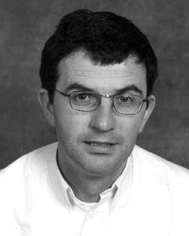 | ||
| Plate1 David O’Hagan | ||
Professor Wilhelm Boland studied Chemistry at the Universities of Münster and Cologne. He completed his PhD work on “Pheromones of Brown Algae” in 1978 under the guidance of Professor Dr L. Jaenicke in the Institute of Biochemistry at the University of Cologne. Following studies on “Pheromone perception and production in brown algae” he was appointed as an Associate Professor for Organic Chemistry at the University of Karlsruhe in 1987. In 1994 he moved as a Full Professor for Bioorganic Chemistry to the University of Bonn. In 1997 he accepted his present position as a director of the Department of Bioorganic Chemistry at the Max Planck Institute for Chemical Ecology in Jena and as an Honorary Professor at the Friedrich-Schiller-Universität, Jena.
His research is focused on the induction of plants’ defense pathways by feeding insects and microbial elicitors (oxylipin signatures), secondary metabolites in general (leaf and flower volatiles), and insect (bio)chemistry with particular emphasis on sequestration and chemical communication.
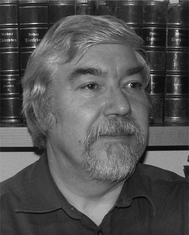 | ||
| Plate2 Wilhelm Boland | ||
Professor Tim Bugg (born 1965) is Professor of Biological Chemistry at the University of Warwick. Following his PhD studies with Dr C. Abell at the University of Cambridge, he spent two years as a SERC/NATO postdoctoral research fellow in the laboratory of Professor C. T. Walsh at Harvard Medical School. In 1991 he began his academic career as a lecturer in organic chemistry at the University of Southampton, before moving to Warwick in 1999. His research interests are in the study of enzyme mechanisms, principally enzymes involved in the bacterial degradation of aromatic compounds, and enzymes involved in bacterial peptidoglycan biosynthesis. He enjoys playing and coaching volleyball, cycling, and playing the violin.
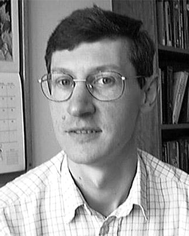 | ||
| Plate3 Tim Bugg | ||
Professor Rob Field is Director of the Centre for Carbohydrate Chemistry at the University of East Anglia and an adjunct faculty member at the John Innes Centre, Norwich. His research interests include the development of new chemical and enzymatic glycosylation methods, structure–mechanism–function studies on enzymes involved in lipopolysaccharide and secondary metabolite biosynthesis, and chemical genomics approaches to understanding glycosylation in biology.
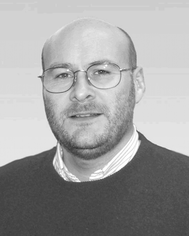 | ||
| Plate4 Rob Field | ||
Professor Jim Hanson is a Research Professor at the University of Sussex. His research has been on the biosynthesis and biotransformation of terpenoids and steroids, the chemistry of steroids and in the development of antifungal agents particularly those that have activity against Botrytis. His area of responsibility for NPR has been that of terpenoids and steroids.
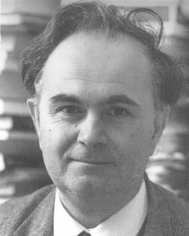 | ||
| Plate5 Jim Hanson | ||
Professor Marcel Jaspars is Professor of Organic Chemistry at the University of Aberdeen. Research in the Jaspars group focuses on the functions and applications of natural products, particularly those from marine invertebrates. The goal of the work is to determine the biological role of selected natural products as well as using others as pharmaceuticals, tools for biomedical research, fluorosensors and catalysts.
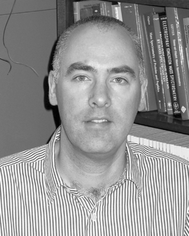 | ||
| Plate6 Marcel Jaspars | ||
Dr Finian J. Leeper is a Senior Lecturer at the University of Cambridge and Fellow of Emmanuel College, Cambridge. His main research is into enzymes and coenzymes, studying their mechanisms, uses and inhibition. Other projects involve study of the biosynthesis of tetrapyrroles and alkaloids, the synthesis and applications of novel contrast agents for MRI, and new methods for the synthesis of PET tracers. On the NPR Editorial Board he is the Commissioning Editor for alkaloids and tetrapyrroles.
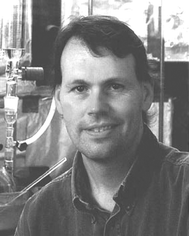 | ||
| Plate7 Finian Leeper | ||
Professor Jürgen Rohr's research is focused on natural product drugs, with an emphasis on anticancer antibiotics. It includes the elucidation of complex multi-step biosynthetic pathways, with particular emphasis on enzyme mechanisms, as well as the generation of modified natural product drugs through combinatorial biosynthesis, the investigation of biochemical signal-transduction pathways influenced by anticancer drugs, and novel cancer gene therapy concepts. Professor Rohr's publications (ca. 100) can be found in leading biochemical and chemical journals. Before joining the University of Kentucky, Professor Rohr was Assistant and Associate Professor at the Department of Chemistry of the University of Göttingen, Germany and Associate Professor at the Department of Pharmaceutical Sciences of the Medical University of South Carolina, Charleston, SC.
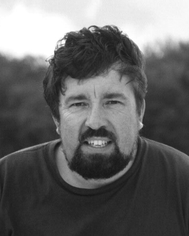 | ||
| Plate8 Jürgen Rohr | ||
| This journal is © The Royal Society of Chemistry 2004 |
